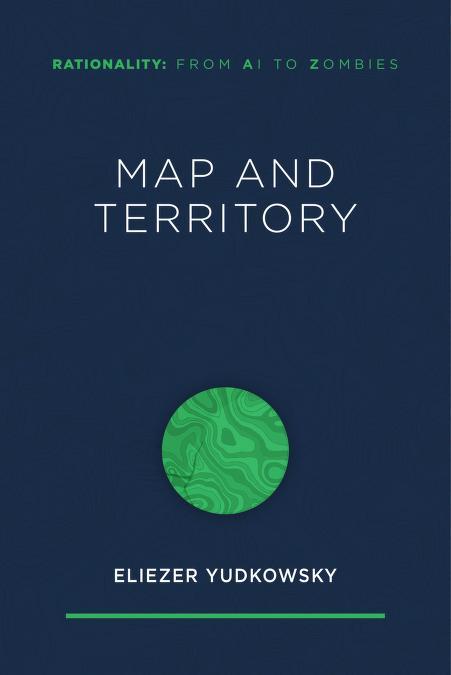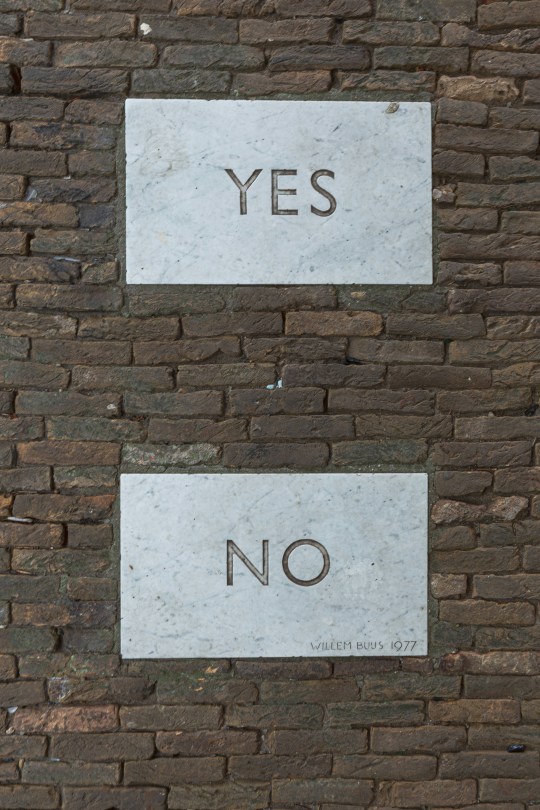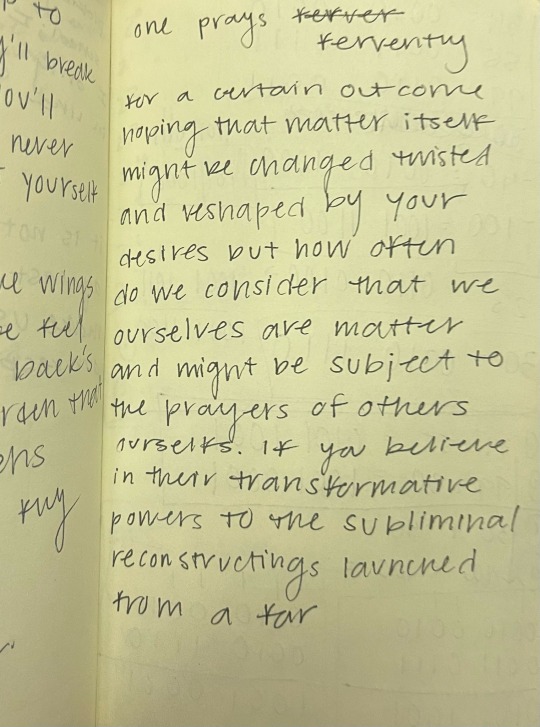#rational thinking
Text
Unraveling Confirmation Bias: How Our Beliefs Shape Our Perspectives
Confirmation bias is a cognitive bias that leads people to interpret, remember, or search for information in ways that confirm their preconceptions or hypotheses. Here are some common things people use as confirmation bias:
Selective Exposure: People tend to expose themselves to information sources and media that align with their existing beliefs.
Selective Perception: They interpret ambiguous information in a way that supports their beliefs.
Selective Retention: People remember information that confirms their existing beliefs better than information that contradicts them.
Cherry-Picking Data: They selectively choose data or examples that support their viewpoint while ignoring or dismissing data that contradicts it.
Seeking Like-Minded Individuals: People often engage with communities or social groups that share their beliefs, reinforcing their existing views.
Misinterpreting Statistics: Individuals may misinterpret statistical data to support their preconceived notions.
Overvaluing Personal Experience: Personal anecdotes and experiences are given more weight than they should be in forming opinions.
Ignoring Expert Opinion: Dismissing expert opinions or scientific consensus when it contradicts one's beliefs.
Confirmation in Social Media Echo Chambers: Social media algorithms often expose users to content that aligns with their views, creating echo chambers where confirmation bias thrives.
Biased Information Search: When researching a topic, people may conduct biased searches, seeking out sources that confirm their beliefs.
Emotional Attachment: Emotional attachment to one's beliefs can make it difficult to consider alternative viewpoints objectively.
Attribution Error: People often attribute their successes to their abilities and their failures to external factors or situations, confirming their self-beliefs.
Groupthink: In group settings, individuals may conform to the group's beliefs to avoid conflict or maintain group cohesion.
Being aware of these tendencies is the first step in mitigating confirmation bias and promoting more open-minded and critical thinking.
#philosophy#epistemology#knowledge#learning#education#chatgpt#psychology#ethics#politics#Confirmation Bias#Cognitive Biases#Belief Systems#Critical Thinking#Perspective#Information Processing#Decision-Making#Bias Awareness#Cognitive Psychology#Rational Thinking
9 notes
·
View notes
Quote
Adopting Christianity over atheism is a judiciously rational decision.
Samples, Kenneth Richard. ‘Without a Doubt: Answering the 20 Toughest Faith Questions. p. 83
9 notes
·
View notes
Text
Ditch the Rabbit Foot: Why Superstition Holds You Back
Daily writing promptAre you superstitious?View all responses
We’ve all seen it: the athlete tapping their shoes twice, the student crossing their fingers for good luck, the anxious traveller avoiding the number 13, or even the common knocking on wood, avoiding black cats, or throwing salt over our shoulders. While these acts may seem harmless, superstition can actually be a hindrance in our…

View On WordPress
#Anxiety#curiosity#dailyprompt#dailyprompt-1875#Fears#Grow#Growth#knowledge#limit your potential#limiting behaviour#limiting beliefs#limiting mindset#Raffaello Palandri#rational thinking#rationality#shape your own future#superstition#superstitious
2 notes
·
View notes
Photo

https://archive.org/details/map-and-territory-eliezer-yudkowsky
The philosopher Alfred Korzybski once wrote: “A map is not the territory it represents, but, if correct, it has a similar structure to the territory, which accounts for its usefulness.” And what can be said of maps here, as Korzybski noted, can also be said of beliefs, and assertions, and words.
“The map is not the territory.” This deceptively simple claim is the organizing idea behind this book, and behind the four sequences of essays collected here: Predictably Wrong, which concerns the systematic ways our beliefs fail to map the real world; Fake Beliefs, on what makes a belief a “map” in the first place; Noticing Confusion, on how this world-mapping thing our brains do actually works; and Mysterious Answers, which collides these points together. The book then concludes with “The Simple Truth,” a stand-alone dialogue on the idea of truth itself.
16 notes
·
View notes
Text
be irrational
It's irrational to want happiness while knowing about all the fucking world events and personal tragedies
But there's no other way to achieve happiness
You cannot keep the events and tragedies aside. You have to live with them. And by being irrational about it, by still wanting to be happy despite those things, you'll get happiness
It's rational to worry about finances and parents, be irrational and be in the moment, and think happy thoughts
0 notes
Text
Rational thinking vs. emotional decisions.

As I pointed out in the previous post, Napa has long been known as a highly regarded fine-dining destination, but when it comes to so-called ethnic food, the one thing lacking is decent Chinese food.
There’s Indian. And Thai. Even middle eastern. Plus decent sushi. There are Chinese restaurants, sure, but they are establishments with overpriced, underpowered offerings, best described by the charitable as mediocre.
All of which is to explain why last Saturday, Roberta, another couple, and I piled into our EV-6 to make a pilgrimage to Albany, in the East Bay, to visit China Village, the one respectable Chinese restaurant within shouting distance of our home.
You ask: “Is it worth a 90-minute round-trip?”
I answer: “It is no Shun Lee, but if you want reasonably inviting cold sesame noodles and Beijing duck, it suffices, and is far superior to anything available here.”
As I’m parking our car on Solano Avenue across from the restaurant, another couple strolls by. “Nice car,” they say. As they walk on, I shout, “Best car ever!” They laugh.
Remote and fleeting though this is, I later think it is one version of a word-of-mouth referral at work. It could be years from now, but the next time that couple is in the market for a new automobile, I suspect at least one of them will remember what I said: “Let’s take a test drive and see for ourselves.”
With the advent of social media, that in-the-street exchange strikes me as bordering on quaint. What changed?
We liked the car, leased it, then I wrote about it, sharing my comments on social-media platforms LinkedIn and Facebook, supplanting a call to your-friend-the- expert for advice.
I imagine others sharing my post; my commentary goes viral, sales of the EV-6 skyrocket, I am declared an automotive influencer of serious repute.
We now return to our regularly scheduled programming.
When I proclaimed my opinion to that couple on the street, I wasn’t thinking about how much money we’d save on gas by converting to 100% electric, or how it’s good for the environment, or how much less we paid for our new car than the Lexus it replaced. All of these are incredibly valid, rational reasons to choose a car.
That’s not why we leased it.
In that earlier post, I used the American Express Platinum Card as a (sort of snarky) example of rational thinking vs. emotional decision-making:
“I have a Platinum Card; when someone asks why, I have two answers. For the skeptical, judgmental and cynical, I list all of the card’s many features. That’s the rational response. For my open-minded friends and colleagues, I say something along the lines of, ‘It’s a cheaper way to buy prestige than having a Mercedes.’ That’s the emotional one.”
Given the amount of money at stake, buying/leasing a car is the furthest thing from an impulse purchase. You might think rational reasons would prevail. That might be true for others; it’s not true for me.
My reasoning, surprising though it might be, was emotional: I like the way it looks.
0 notes
Text
Unveiling the Veil: A Rational Look at Superstitions and Their Grip on Society
Unveiling the Veil: A Rational Look at Superstitions and Their Grip on Society #Superstitions #RationalThought #Skepticism #CulturalBeliefs #HumanPsychology #CriticalThinking #MythBusting
Are you superstitious?
Are you superstitious? Do you catch yourself uttering a silent prayer when you break a mirror, or feel a jolt of unease at the sight of an empty ladder beckoning you to pass beneath its frame? This isn’t just a nod to ancient customs or a playful engagement with folklore; it’s an admission ticket to a globally sprawling, time-honored club of superstition. This club, which…

View On WordPress
#critical thinking#Cultural Beliefs#dailyprompt#dailyprompt-1875#Human Psychology#Intellectual Inquiry#Rational Thinking#skepticism#superstitions
0 notes
Text

#emotional balance#sniper#provocation#rational thinking#black and white#edit#military#literature#cold#prestige
0 notes
Note
It's anon!
This fear I had back then kinda came back recently...like having anxiety about anxiety itself. Like feeling different than people around me (who don't seem to worry or overthink about pointless stuff like I do like intrusive thoughts and such) or something like that.
You know how many people call it an illness? But that makes me feel weird. Because it's not like I have some illness or disease that needs to be cured right? It's not an illness that I have to cure by taking pills or something. It's just a stress response that led me to forming a habit of worrying and overthinking.
Anxiety is a normal feeling that every human feels and every one worries about things every now and then. It's just in my case, they overthinking and worrying has become a habit because my mind gets anxious whenever I have any irrational thoughts or what ifs.
So I believe that labelling it as a condition or basically a "disorder" makes more sense because then I can believe that I'm not ill but rather just have made a habit of overthinking and worrying and gotten stuck in a anxious cycle is all.
I've been reminding myself that anxiety is a common feeling and that there's nothing wrong with me.
And so I know I can replace these unhealthy thinking patterns with healthier ones and get my mind to a more healthy state again where it feels anxiety in normal levels like every human does!
But you know I had gotten two books back then that I still have which are actually very helpful when it comes to anxiety. One is "At Last A Life" by Paul David and other is "Overcoming Unwanted Intrusive Thoughts: A CBT-based Approach" by psychologist Sally M. Winston. Both are really good books.
The things my therapist from two years back told me are very similar to what I read in those books. Both books talk about anxiety being a stress response from unhealthy thinking habits over time.
But both also talk about recovery in a very easy to understand way. Things like when I worry about how to get out of this situation of anxiety, I can remind myself that I don't need to do anything. Umm I didn't explain that well actually.
But just that all the thoughts we have are in the end, just thoughts. They bear no certainty or absolute truth. So we can observe them without judgement and without feeling the need to "do" something about it.
Similarly, for stuff like panic attacks or de-realization too, we don't have to actively "try" to get rid of those feelings.
So basically, when we feel anxious, feel any physical symptoms or find ourselves overthinking and worrying, instead of thinking of it as "abnormal" we can think of it as normal response of our body to perceived threat. Something that everyone has!
And so instead of trying to get rid of those thoughts or feelings or sensations, it's to accept them and allow them and continue with life regardless because they are not actually harmful! So allowing whatever thoughts or feelings to come and not caring about the "content" of the thoughts but rather, not deeming them as important by not trying to get away from them is the key to recovery.
There's this sentence I read: Recovery happens when it no longer matters whether you have these thoughts or not. When that sense of importance is removed from the thoughts and they remain what they really are: just thoughts that every one has.
I think it's a great way of thinking about this whole thing.
What do you think about this?
I tend to wake up every morning and within a few seconds I'll think something like "oh but I'm dealing with anxiety" or "oh but I've been having problems with these xyz thoughts"
That's the thinking I want to change. So instead of thinking like that, when I wake up, I try to replace those old thoughts with something like "oh I've just been overthinking about my thoughts this past one month that's all" or "I don't have to control the outcome but just focus on living life knowing that I'm okay"
So instead of thinking"oh I've been dealing with anxiety" I try to think something along the lines of "I've just been worrying and overthinking about my irrational thoughts is all"
It's not something that has "happened" to me like an illness. So it's not because I "have" anxiety disorder that I have these thoughts or that I worry about these thoughts. But rather it's the other way around. It's because I get anxious from these thoughts and worry and overthink about them that it's labelling as anxiety.
When I think like that, I can think more clearly. Basically, when I stop trying to solve the problems in my mind that don't actually exist, and learn to think of these thoughts as just "thoughts" without judgement, the anxiety will go away by itself.
So it's not the "anxiety" itself that I need to combat but rather the overthinking and worrying. When I learn to do that properly, the anxiety will go away by itself. Something like that.
Because I've suddenly started thinking about anxiety like I did two years ago. Like it's something that's happened to me and that's causing all the thoughts and worries. But that makes it seem like I need to do something about the anxiety which I know is a wrong way to think.
When I learn to accept, allow and deal with the irrational thoughts, when I stop trying to indulge in the worrying and overthinking, those thoughts will go away on their own and so will the anxiety.
Of course, it's a normal response so I may feel it from time to time like anyone else but I'll be okay.
Also, when I find myself worrying about the anxiety itself and overthink thoughts like "will the anxiety always stay?" "Or this anxiety is something that has happened to me" or "how can I recover or if it's even possible?" When I think about thoughts like that, is it still okay to label them as just thoughts too and not believe them? Is it okay to move on from them?
Is that a healthy way to think?
I'm kinda confused. Am I ill or is this just a setback? Am I simply overthinking and worrying too much about things I read/watched related to anxiety?
How do I approach this? Is it okay to keep doing what I was doing? That is, to label all irrational intrusive thoughts as thoughts and move on?
But when my mind makes me think "you're mentally ill right now" so what do I do about that thought? Do I just label it as a thought and not "fact" and move on too? And if it's true then what? What do I do? I'm so confused about this 😭
I mean, when the intrusive irrational thoughts are about something else like intrusive images, or worrying about something else then I can remind myself this is just a thought and not true. But when the worry thoughts are about anxiety itself? Then what do I do?
Because for me, all that's happening is I'm overthinking and worrying about all the what ifs and irrational intrusive thoughts of all sorts. But then eventually getting clarity and moving on. So idk I'm kinda confused on how to go about it?
Until now, with all my other thoughts, (like intrusive images or what ifs about other things), I used to tell myself "it's normal. Everyone has these kinds of thoughts but most people don't bother with it. They can just not be bothered by them or even if they do get bothered, they can easily move on" so I used to think "well I can learn to do it like that too because I have been doing that the past year and a half too! Suppose if my sister can imagine xyz intrusive image and not be bothered then I can learn to let it go too"
But what about worry thoughts about anxiety and anxiety disorders and mental illness itself? How do I treat them? The same as all other thoughts?
Do I tell myself that I'm fine and just overthinking about this too?
And this is sort of unrelated but my sister has a habit of sometimes plucking her hair. I just read about this recently again so I thought I should ask? She says it's fun to feel the different textures of hair and the thing is I used to have this habit too. For the same reason- I thought it was fun to feel different textures of hair but I left it. Now she has it. But once in a while, I may find myself doing it too but it's like...whatever. Umm I know it can be a condition too but if it's simply for fun, is it still a problem/condition? Or is it just a bad habit? Because I remember reading something two years back about it being a BFRB disorder "trichotillomania" or something. But again, what I meant to ask was- is it always a disorder or condition or can it just be a bad habit if it isn't triggered by any distress or isn't excessive and doesn't cause any distress?
I mean, if it isn't affecting my life in any way and isn't necessarily triggered by anything, if it isn't really a bother then? Or does the criteria like what part of the body you pull hair from or anything else matter? I hadn't even noticed it or never thought about it because it's a minor thing...once in a while habit sort of. And since I have strawberry skin and ingrown hairs, I sometimes tend to pick at it too like if I'm doing nothing and see it but it's a very minor thing. But when I read that post recently, I suddenly started worrying if it's a disorder too? Or is it a BFRB too? Or something like that.
I'm so confused as to what makes it a "problem" versus when it's just a habit like any other? Am I just overthinking again?
Hey Anon
Yea, I don't like to call it an illness, maybe a disorder if anything, but that's only because your mind is thinking irrationally, which triggers an emotional and physical response in the body…but like you said, it's not really something that you need to cure because anxiety is a helpful and necessary survival mechanism of our bodies. It's definitely something EVERY one feels. I don't believe that anyone is completely fearless because you can skydive but still be afraid of spiders or get nervous/anxious taking a test or making sure you don't get hit by a car when you're crossing the road. It's just a matter of everyone's ability to handle those worries and stresses, which is where society has severely crippled most of us.
Yes! We are merely just observers of our thoughts! We do not have to act on them, but we can allow them to be thought and accept them for what they are, whether we want them or not. We can control how we react to them.
There's this sentence I read: Recovery happens when it no longer matters whether you have these thoughts or not. When that sense of importance is removed from the thoughts and they remain what they really are: just thoughts that every one has.
I LOVE THIS. It's so true! It's really all about a shift in your mindset to no longer let your thoughts have control over you. It takes practice and patience to get to this point, but it's definitely possible.
I know what you mean by having those kinds of thoughts when you wake up. I would wake up with similar thoughts, but moreso about my depression.
When I think like that, I can think more clearly. Basically, when I stop trying to solve the problems in my mind that don't actually exist, and learn to think of these thoughts as just "thoughts" without judgement, the anxiety will go away by itself.
Yes! You're definitely grasping what it means to not let your thoughts have control over you. This is amazing
Also, when I find myself worrying about the anxiety itself and overthink thoughts like "will the anxiety always stay?" "Or this anxiety is something that has happened to me" or "how can I recover or if it's even possible?" When I think about thoughts like that, is it still okay to label them as just thoughts too and not believe them? Is it okay to move on from them?
Is that a healthy way to think?
Yes! I know it almost feels sort of meta to have those kinds of thoughts, but you're really just reminding your mind that you're self-aware now and that even these kinds of thoughts are still just thoughts…and honestly, I think they're normal to have as a person who is now self-aware lol. You're on the right track, even though it may feel like you're confusing yourself. Like I mentioned above, you are just an observer of your thoughts, so it's normal to think these things and to even label them as just thoughts and not facts because they're not rooted in factual evidence.
There was a time where I used to think I was addicted to being depressed and that I just wanted to stay that way, even though I was trying to get help. It's honestly just SO hard to think of yourself thinking differently or changing because you've been so used to being one way.
The thing with trichotillomania is that it's another stress response, but it's more compulsive to extreme senses. I used to have this at some point too (not too severely) and I found that through healing my depression and anxiety, it lessened over time. I do that thing too where I look for a weird texture in my hair and pull it out, but it's usually when I'm bored. It was a bad habit of mine in the past and I think it was because it gave me a sense of control because I was filtering out the "bad" hairs because they were different than the rest. Or at least that's what I think it was lol. It can definitely become a bad habit for some people because they'll do it to a point where they get bald spots, which can then lead to self-esteem issues and so forth. I think it's normal for people to want to "nitpick" at themselves and I mean have the wanting to pop pimples, pull out ingrown hairs, etc., but it's the extreme end where it crosses the line of bad habits into a disorder. And no, I don't think it matters where on the body you do it. People pluck all their eyebrows and eyelashes out, their body hair, etc.
0 notes
Text
My Emotions...
My Emotions…
Photo by Ana Bregantin on Pexels.
My emotions are not the situation
My emotions are not the situation
My emotions are not the situation

View On WordPress
0 notes
Text

Give the king a moment he just woke up
#legend of zelda#ganondorf#tears of the kingdom#loz: totk#Ganon honey sweetie I respect u so much I’m sorry for objectifying u#but when I see a handsome man built like a brick house#all rational thought leaves my quarter of a brain cell#whenever I opened the reference pic I forgot what I was doing#I wish I was kidding#I just think that MEN
5K notes
·
View notes
Text
The idea that uni protesters are "elitist ivy-league rich kids larping as revolutionaries" on Twitter and Reddit and even here is so fucking funny to me if you actually know anything about the student bodies at these unis. Take it from someone who's going to one of the biggest private unis in the US, 80% of the peers I know are either from the suburbs or an apartment somewhere in America, children of immigrants, or here on a student visa. I've heard about one-percenter students, but I've never met one in person. Like, don't get me wrong, the institution as a whole is still very privileged and white. I've talked with friends and classmates about feeling weird or dissonant being here and coming from such a different background. But in my art program, I see BIPOC, disabled, queer, lower-income students and faculty trying to deconstruct and tear that down and make space every day. So to take a cursory glance at a crowd of student protesters in coalitions that are led by BIPOC & 1st/2nd-gen immigrant students and HQ'd in ethnic housings and student organizations and say, "ah. children of the elite." Get real.
#also idk how to tell you this but even if it were true. wealthy children potentially sacrificing their educational careers to protest is#a good thing actually. idk how to tell you that caring about people from other nations is good#personal#“this war has nothing to do with most students cuz nobody's getting drafted” idk how to explain to you that we should be angry#that our tuitions of 10s of thousands of dollars that we pay every year for an education is being used to fund a genocidal campaign#also the implication that if you go to a uni institution you are automatically privileged by participation no matter your bg#i didn't /want/ to go to this school. i was supposed to go to a school with an art/animation program. but i realized my immigrant#parents have been working their whole lives to get me here. and turning the opportunity down would be a disservice to their sacrifice#this is getting into convos of “what 2nd gen kids owe their parents” which is different for everyone but. yeah#i just get pissed off at seeing people misrepresenting student bodies as “wealthy” and “privileged” and “elite” when it's such a blatant li#i remember a year ago a friend told me they can't fly home to hong kong for winter break because the plane tickets are too expensive#so they have to find temporary housing around the area#last quarter for a film doc class my film partner made a doc on a small group of marxist grad students from india discussing praxis#during a rally a few months ago in response to police presence the coalition invited palestinian students to speak about their experiences#and lead songs and read poems they wrote. these are STUDENTS. are they elitist too?#this is not to disregard my own personal privilege either.#this whole narrative's just to rationalize a lack of empathy to me. seeing a 19yo student get shot by a rubber bullet and your first#reaction is “HAW! HAW! bet richy rich didn't see THAT coming when she put on her terrorist hood!”#newsflash. these big uni campuses are HAUNTED by the violence of past protests and revolutions and police brutality. we know.#why do you think these coalitions have been making reinforced barricades at record speed
828 notes
·
View notes
Text
eleven is fascinating to me because he came right off the back of tens horrible traumatic breakdown after he lost everything and he immediately tried to establish himself as the opposite of that. he is funny and goofy and almost childlike, and he bulldozes on in his adventures with amy like nothing happened at all. but then something happens and his masks slips and it's like oh! the core of this man is still anger. he is so so angry all of the time and this façade is the only thing stopping him from being consumed by it. he isn't over any of it and he hasn't moved on. he is wearing a fez and laughing but under that all that exists is age old anger and grief and it is going to consume him
#i do think that this pit of anger was eventually covered and soothed by the ponds#but he didn't adress it and he couldn't even look at it until he was twelve#when he stopped pushing back and repressing everything and finally allowed himself to exist as he was#but ok listen#its all layed out in the first 3 episodes of season 5 and in the way amy sees him#episode 1. here is the new doctor he is energetic and reeling and fun#episode 2. the space whale comparison. here is the new doctor. he is unthinkably ancient and almost godlike but he is so so kind#and patient and good. he is ancient and lonely but he can't stand to see children cry. so the doctor helps people#episode 3. daleks. the doctor is a soldier. these are his age old enemies. he wants them dead and he will stop at nothing#all logic and reason vanish. he is hitting the dalek with a pipe and yelling his head off while amy watches in horror#like obviously we know why but amy didnt#this is not a sane or rational man he is unstable and angry#and in that episode he was stripped back to what he largely is: hate#you would make a good dalek ect ect ect#anyway 3 episodes with 3 very distinct and equally definitely traits layed out like: here you go#i don't like elevens era much but those first 3 episodes were great#doctor who#eleven#amy#eleventh doctor#matt smith#dr who#dw#i mean idk this is what river literally had to spell out for him#eleven was careening completely out of control#how long til doctor means warrior indeed?#mine
1K notes
·
View notes
Quote
There are some minds which give us the sense that they have passed through an elaborate education which was designed to initiate them into the traditions and achievements of their civilization; the immediate impression we have of them is an impression of cultivation, of the enjoyment of an inheritance. But that is not so with the mind of the Rationalist, which impresses us as, at best, a finely-tempered, neutral instrument, as a well-trained, rather than as an educated mind.
Michael Oakeshott, “Rationalism in Politics and Other Essays” (1991).
#philosophy#political philosophy#rationalism#universalism#rational thinking#British Philosophy#British Idealism
0 notes
Text
Human beings are not rational being, we're rationalizing beings
0 notes
Text

page frm my diary 2022
0 notes